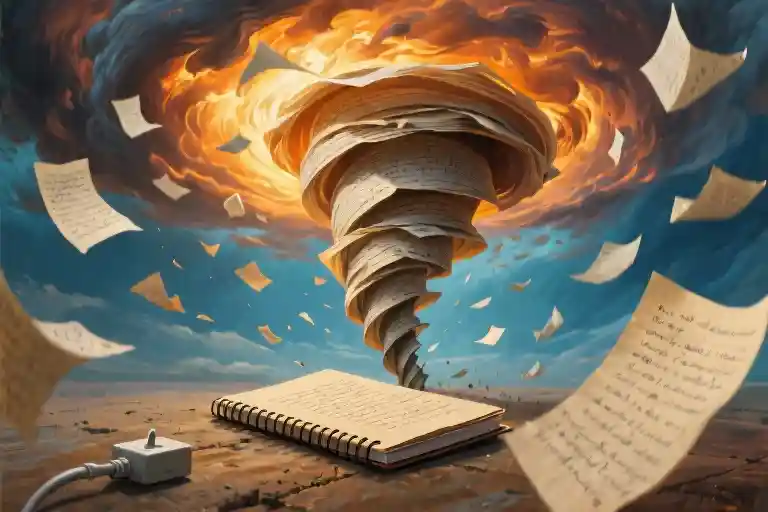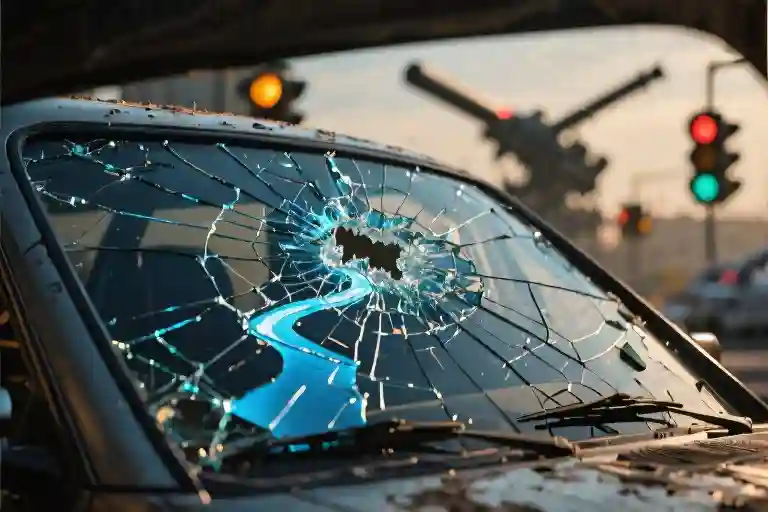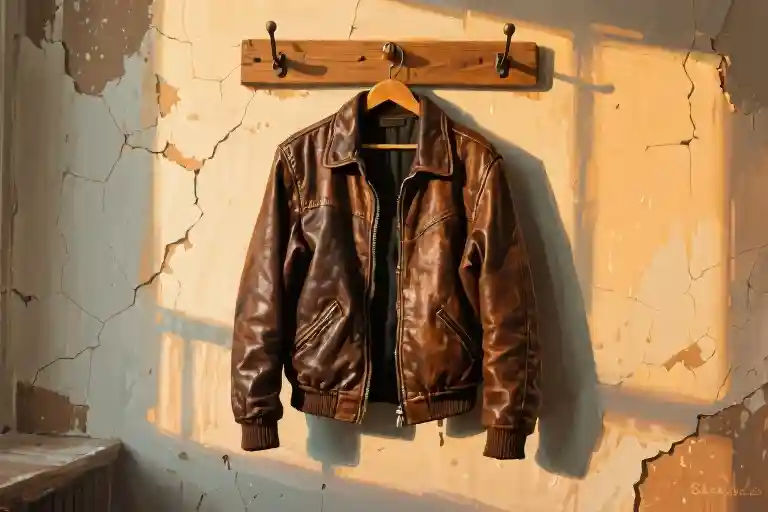The ink bleeds across the page in slow motion, a Rorschach test of everything that could have been. I stand at the cliff’s edge of almost—that cruel geological formation where gravity pulls backward toward the origin point. My fingers tremble above the keyboard, each key a tectonic plate shifting under the weight of unwritten words.
Outside, the wind picks up velocity like a composer escalating the tempo. The windows rattle in their frames, a percussion section keeping time with my pulse. On my desk, coffee rings overlap like tree rings marking droughts—here’s the year the publisher said maybe, there’s the season the agent stopped replying. The liquid seeps through draft notes, dissolving semicolons into ink puddles where unfinished thoughts drown.
This is how catastrophes begin: with atmospheric pressure dropping faster than your expectations. The barometric needle twitches like a polygraph test—did I truly believe it would happen? The first warning comes as a whisper between floorboards, that subtle creak of foundations adjusting to new stresses. By the time the weather radio crackles to life, you’re already memorizing the feel of doorknobs you might need to wrench open with bare hands.
Three things I mistook for ordinary that morning:
- The way sunlight hit my rejection letter at such an angle it looked like a contract
- Sparrows abandoning the oak tree in synchronized flight
- My reflection holding its shape in the bathroom mirror
(Last year’s journal lies open to this same date: ‘Met with investors—they loved the prototype!’ The exclamation point stabs upward like a weathervane arrow.)
When writing about personal catastrophe, the language bends under seismic pressure. Sentences fracture mid-clause. Metaphors collide like warm and cold fronts—here’s the tornado of self-doubt, there’s the hailstorm of what-ifs. I inventory my survival kit: one working pen, the left earbud that still plays music, three variations of ‘maybe next time.’
The existential crisis writing itself into my bones isn’t about the project’s death—it’s about outliving the version of me who believed in it. That woman still exists in the eye of the storm, forever standing where the clinic’s fluorescent lights hum the theme song of waiting rooms. When the intake nurse asks ‘Occupation?’ my mouth shapes the word ‘writer’ just as the ceiling tiles start their downward spiral.
Somewhere between the second and third blood draw, I develop a theory: trauma narratives are the literary equivalent of phantom limb syndrome. The brain keeps drafting emails to editors who’ve moved on, composing tweets for a platform that no longer exists. My fingers still reach for a manuscript that’s become atmospheric ash—can you see it in the sunset’s particular shade of orange?
This is how we measure disaster aftermath: not in lost property but in surviving artifacts. A single sentence salvaged from the wreckage (‘The light enters sideways here’). A voicemail saved through sheer technological stubbornness. The way my shoes remain paired by the door, laces neatly tied as if for ordinary mornings.
I press my palm against the window glass. Cool. Solid. Real. The storm has relocated to my interior weather system, where it will circle for months, maybe years. But for now, the air smells of ozone and fresh coffee. Somewhere beyond the ruined drafts, a blank page insists on its own existence.
The Barometer Drops
Three warnings came, each more ordinary than the last. The first arrived disguised as insomnia—those 3 AM awakenings where the ceiling cracks seemed to spread like inkblots in reverse. I documented them in my journal with clinical precision: February 14: Woke to sound of own heartbeat at 128 BPM. No discernible cause. The numbers comforted me, their neat rows forming a bulwark against chaos.
The second omen appeared during my morning coffee ritual. The liquid’s surface developed concentric ripples though my hands lay still on the kitchen counter. I blamed underground construction until noticing the trembling extended to my reflection’s lips in the spoon. That’s when the radio meteorologist mentioned atmospheric instability between forecasts for sunshine.
Last came the animals. Sparrows abandoned the maple outside my writing window, their usual chatter replaced by an absence so loud it rang in my molars. At the shelter where I volunteered, the oldest tabby pressed her entire body against my shins while making a sound I’d never heard from feline throat—something between a whimper and a dial-up modem.
From last year’s journal, same date:
‘Contract signed at 11:17 AM. Editor called the manuscript “a once-in-a-decade voice.” Celebrated with that $38 bottle of Scotch gathering dust since graduation. The taste of peat smoke and vindication.’
The ink had bled through the page, leaving a ghost of that sentence on today’s empty sheet. I ran fingers over the impression, feeling the fossilized joy in the paper’s texture. My current pen hovered above it, unsure whether to trace the old words or document the new tremors traveling up my wrists.
Outside, the maple branches began tapping Morse code against the glass. I mistook it for inspiration knocking.
The Sound Topography Inside the Whirlwind
The tornado doesn’t roar like you’d expect. It starts with the high-pitched whine of strained window frames, the kind of sound that makes your molars ache. Then comes the symphony of unsecured objects – my ink bottles dancing their last waltz across the desk, paperweights rolling like drunken percussionists. The manuscript pages take flight first, not fluttering but snapping like sailcloth in a squall.
Flashback: The fountain pen’s gold nib catching conference room lights as it hovered above the contract. That suspended moment when all possible futures still existed.
What the weather channel never prepares you for is the smell. Ozone sharp as broken promises, the musty scent of drywall disintegrating into memory, and underneath it all – the copper tang of fear. My skin remembers this metallic taste from childhood nosebleeds, from biting through my lip during the school play’s forgotten lines.
Three distinct sound layers emerge as the walls begin their surrender:
- Ground Level: The basso profundo of structural beams groaning, floorboards popping their nails like champagne corks at a funeral
- Mid-Air: The staccato rain of debris – a hailstorm of what was once my library
- Upper Register: The eerie, almost human wail of wind through the newly created gaps in reality
Present moment: A single sheet of paper slaps against my cheek, sticking with either sweat or blood. The opening paragraph of my unfinished novel, now illegible where the ink has run.
The emergency alert on my phone keeps repeating its mechanical warning, but the real alarm comes from my own voice – raw and unrecognizable as I shout at the uncaring vortex. This is when I understand that natural disasters have perfect comedic timing. Of course the tornado would arrive precisely when I stood equidistant between ruin and redemption.
In the storm’s eye (that cruel illusion of calm), I notice my hands have assumed the position of prayer without my consent. The irony tastes like bile – these same fingers that typed blasphemies against fate now folded in desperate bargain. The tornado responds by taking the east wall first, revealing the surreal sight of twilight where my bookshelf used to be.
What no trauma narrative prepares you for is the absurdity. How your brain insists on noticing trivialities: that one surviving teacup rocking but not breaking, the way your socks don’t match, the half-formed thought about whether you turned off the oven. As the roof peels back like a sardine can, I find myself laughing at the cosmic pettiness of it all – to be undone not with tragic grandeur, but amid yesterday’s coffee stains and unpaid bills.
The last sound before silence: the distinctive pop of a lightbulb exploding, remarkably similar to the champagne we never opened to celebrate.
The Constellation of Bruises
They charted my body like an unfamiliar night sky, those violet splotches blooming along my ribs. The ER nurse’s gloved fingers hovered over each one, her touch lighter than the memory of impact. “This cluster here,” she murmured, “almost forms Cassiopeia.” I imagined connecting the dots with imaginary lines, creating constellations from catastrophe.
Between the antiseptic sting and the beeping monitors, a flashback materialized—the deleted email with its cruel subject line: Congratulations on Your Selection. I’d emptied the trash folder immediately, but some words metastasize in the neural pathways. The nurse’s penlight became the cursor blinking over Reply All, the blood pressure cuff tightening like my throat that afternoon.
“And these along your scapula,” she continued, tracing what might’ve been Orion’s belt if stars could form from bookshelf collisions. The trauma bay’s fluorescent lights rendered everything in brutal clarity: the way my left little finger bent at 15 degrees, the tremor in my knees that had nothing to do with shock. They’d asked my occupation at triage. Writer seemed like a joke told in poor taste when your most carefully constructed sentences lay scattered across three counties.
In the lull between x-rays, I studied the ceiling tiles. Someone had scratched coordinates into one—45.5231° N, 122.6765°—probably a medic’s hometown. We all carry maps of places we can’t return to. My own coordinates kept recalibrating: the distance between almost and never, the longitude where ambition crosses into delusion.
The resident arrived with my scans, his white coat starched with false reassurance. “No internal bleeding,” he declared, as if that were the metric that mattered. When he gestured to the deepest bruise spanning my hipbone—”This one’s particularly… expressive”—I nearly laughed. Of course it was. That’s where the desk had struck me as the wind tore it from the floor, the same spot where my laptop had rested for 87,000 keystrokes.
They discharged me with instructions to watch for concussion symptoms. Nobody mentioned how to diagnose when your entire life feels like a slow-motion brain injury. Outside, the parking lot asphalt shimmered with midday heat. I pressed a hand to my makeshift constellation map, feeling the throb of celestial bodies that would never guide anyone home.
Survivor’s Arithmetic
The morning after the storm, I found myself doing calculations that made no sense. Adding up the weight of lost manuscripts in carats, dividing the volume of shattered glass by the square footage of regret. The numbers kept rearranging themselves like debris in a wind tunnel.
When the firefighter asked about valuables to recover, my fingers automatically traced the outline of a USB drive in my pocket – the one containing three years’ worth of unfinished novels. His gloved hand hovered over the notepad, waiting for me to name objects with insured value. I whispered coordinates instead: “Third floor study, northwest corner, beneath what used to be a bay window.”
There’s particular algebra to catastrophe. You start measuring hope in millimeters – the gap between a publisher’s hesitation and acceptance, the thickness of a contract unsigned. Then suddenly you’re calculating in light-years, the distance between who you were and this stranger sorting through waterlogged boxes.
I developed an obsessive ritual of weighing salvageable pages against their digital backups. The paper versions always lost, their water-swollen fibers dragging down the scale. Yet I couldn’t abandon them, these wounded soldiers of failed ambition. Their ink bled through manila folders like old wounds reopening.
Insurance forms demanded dollar values for creative work. How to appraise the exact moment a character first breathed independently? What depreciation schedule applies to a metaphor that once made your spine tingle? I left those columns blank, my pen hovering like a hummingbird over dead flowers.
The firefighter returned with a warped photo album and my grandmother’s recipe box. “These survived the basement,” he said, as if explaining a magic trick. The recipes were illegible, their ink dissolved into Rorschach blots. I pretended to recognize my mother’s handwriting in the stains.
That’s when the real arithmetic began. Not the counting of losses, but the division of self. The person who entered the storm still believed in meritocratic delusions. The one emerging understood that sometimes destruction chooses you at random, like lightning preferring one tree in a forest.
At 3:17am, I caught myself calculating the weight of tears needed to float all the ruined pages. Then the more practical equation: milliliters of whiskey required to stop such absurd calculations. Neither sum brought back the sentence that had almost written itself before the windows exploded.
Now when people ask “What did you lose?” I show them the equations instead of answers. The conversion rate between hope and endurance. The specific gravity of grief. These are my new valuables, carried in mental pockets no storm can reach.
The Comet’s Tail Care Manual
Insomnia after catastrophe shares an eerie kinship with cosmic radiation—both leave invisible traceries through the body’s dark matter. At 3:17 AM, when the digital clock’s numerals glow like spent fuel rods, I chart constellations between my pulse points where adrenaline still hums. The physicist next door would appreciate how trauma particles behave: half-life decaying slower than promised, contaminating even moonlit moments with their gamma-ray grief.
The phone vibrates against my sternum. Mother’s caller ID appears—a fossil from the pre-storm epoch. When I press answer, the silence stretches taut as a radio telescope listening for dead stars. Her withheld sob travels farther than words ever could, carrying all the unspoken accusations: You should’ve boarded the windows sooner. You knew the season for twisters.
NASA’s data on astronaut sleep deprivation mirrors my own fitful charts. At certain altitudes of loss, the body forgets earthly rhythms. I measure time now in meteor showers—not hours—counting each streak of memory burning through the atmosphere of my eyelids. The psychiatric journals call this ‘hyperarousal.’ The poets call it ‘keeping vigil with ghosts.’ Both agree the condition follows cosmic law: energy never disappears, only changes form. What was once ambition now crackles as static electricity when I touch doorknobs.
Three survival strategies emerge from the debris:
- Borrow spacecraft insulation techniques – Layer blankets like thermal shielding against the void’s chill
- Track celestial events instead of deadlines – Let Perseids dictate your waking cycles
- Collect stardust in unexpected places – The bathroom mirror still holds constellations of toothpaste spatter from our last morning
Mission control would classify this as a ‘successful failure.’ The main objective (that glittering future) lies in fragments across four states, but the secondary systems? The seismograph of my ribs still registers beauty. The star maps of old freckles remain legible. And when I blow on this mug of chamomile, the ripples move outward in perfect, expanding rings—proof some laws remain unbroken.
Through the bulletproof glass of exhaustion, I watch dawn’s pink tendrils test the horizon. The comet tail of this disaster will trail me for years, yes, but tonight I’ve learned to read its glow as navigation aid rather than wound. There’s comfort in knowing even Cassiopeia had to be shattered before becoming a constellation.
The Shoelace Paradox
The act of tying shoelaces after catastrophe should be simple. You’ve done it ten thousand times before—right over left, loop around, pull through. But when your hands shake with the aftershocks of loss, even this mundane ritual fractures into existential calculus.
First Dilemma: Do you kneel to reach the laces, submitting to gravity’s pull toward the wreckage? Or lift your foot to meet your hands, asserting some semblance of control? The posture of grief is never neutral.
Second Contradiction: The left lace (always the left) has frayed where the tornado’s teeth gnawed at it. Do you preserve this damaged witness, or sever the weakened fibers? Survivors become archaeologists of their own ruins.
I measure progress in these microscopic choices. Yesterday I wore slip-ons. Today I attempt the double knot my father taught me—his hands guiding mine in a memory that now smells of ozone and splintered wood. The muscle memory outlasts the house where we practiced.
Neurologists say trauma disrupts procedural memory. Yet here my fingers move through the old dance, even as they forget how to hold a pen that isn’t vibrating with storm warnings. The body remembers routes the mind has barricaded.
At the shelter they gave us new laces—bright orange like construction signs. A color meant to say caution but screams rescue to eyes starved of hue. I keep them coiled in my pocket, these umbilical cords to a world that still believes in safety.
Sometimes I think the true test isn’t swimming those thousand meters, but this: threading stiff plastic tips through stubborn eyelets while your breath still comes in sirens. The mundane as minefield. The ordinary as olympiad.
Ten attempts. Ten failures. The loops either strangle themselves or bloom loose before the second step. I consider going barefoot like some grief-stricken prophet, but the gravel outside remembers my blood from last time.
An old journal entry surfaces: Tied perfect bows for the recital. The applause lasted longer than the knots. All those years measuring success in tightness, never considering what survives the coming undone.
Perhaps this is the lesson written in limp cotton—that after the wind finishes with us, we’re left not with solutions but different kinds of tension. Not fixed but fastened enough to stumble forward. Not healed but holding.
—?





